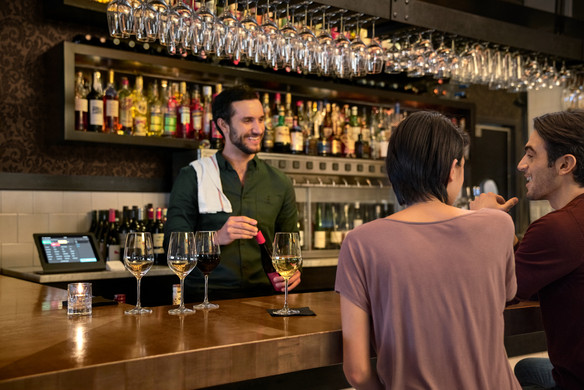Table of contents
This article is for educational purposes and does not constitute legal or tax advice. For specific advice applicable to your business, please contact a professional.
If you’re opening a business that sells alcohol in Florida, you’ll need to obtain applicable liquor licenses. The process can be complex because the state of Florida has very specific license requirements and is one of several states that uses a quota system for licenses —that is, it has a limit on the number of licenses it issues per county.
The Florida Department of Business and Professional Regulation (DBPR) regulates all business licensing activities, but the Division of Alcoholic Beverages & Tobacco (ABT) specifically issues all liquor licenses and permits. While the ABT provides detailed information regarding the application process, understanding those requirements can make the process easier and help you get a license faster. Below are key steps to keep in mind.
Steps to getting a liquor license in Florida
1. Determine the type of license you need
Florida offers more than 10 categories of alcoholic beverages and tobacco licenses. For the retail beverage category, there are over 30 specific licenses. But the most popular types of licenses issued for retail businesses are:
- Quota (liquor) license – One quota is issued for every 7,500 residents. Licenses are issued via a lottery system, but they can also be purchased, leased, or transferred from an existing license owner.
- SRX/SFX license – This is also known as a “special restaurant license” or “special food license.” To qualify for this license, your business must have at least 2,500 square feet of service area, the capacity to seat 150 patrons, and derive at least 51% of revenue from food and non-alcoholic beverages.
- Beer and wine license – A beer or wine license can be obtained directly from the ABT and there are no restrictions on the number of licenses issued. Getting a beer and wine license is generally easier than getting a quota or SRX or SFX license.
2. Determine the cost of your license type
License fees depend on the license type and the location of your business. Annual license fees vary from $28 to $1,820, depending on the county population. For example, the annual fee for a 4COP (consumption on-premise) license for counties with a population over 100,000 is $1,820. You may also need to pay other license fees that are not based on county population, depending on the type of license requested.
For quota licenses, the application fee is $100 per application. Temporary licenses are one-quarter of the permanent license fee or $100, whichever is greater.
If you need a quota license, you may have to buy one from an existing owner in the open market. The cost will vary depending on the demand. Once you’ve purchased a license, the next step is to apply for a transfer of ownership with the state of Florida.
The transfer fee for quota liquor licenses is calculated at a rate of 4 mills (or $1 for every $1,000) on the average annual gross sales of alcoholic beverages in the three years preceding the transfer and is capped at $5,000. You may pay less if you can provide sales, income, or audited accounting records that show that your calculated transfer fee is lower than $5,000.
3. Prepare the applicable documents for your license/business type
Supporting documentation required for your application depends on your license type. For example, health approval is required on all applications for consumption on-premises, while clearance from the Department of Revenue is required for all new, transfer, and change of location applications, as well as applications which change the licensee’s name.
Other documents that may be required include:
- Fingerprints
- Zoning approval
- Sales tax
- Affidavit
- The social security number of all applicants
- Your business registration number and federal employer’s identification number
- A sketch of your business premises
- Arrest disposition, if you have a criminal record
- Personal questionnaires for all officers, directors, or shareholders
- A lease or deed providing right of occupancy
4. Submit your application
Once you’ve met all the requirements and prepared the necessary documents, the last step is to submit your application to the division district office covering the county where your business will be located. You can apply online, via post, or in person. As part of the approval process, the DPBR/ABT will review the documentation provided and inspect the site to be licensed. They may also issue a temporary license if you request one. Approval periods vary depending on the type of license requested and if you’ve provided all required information.
If your application is approved, you will be billed the annual license fee and your annual license will be issued and mailed to you after payment.
![]()














